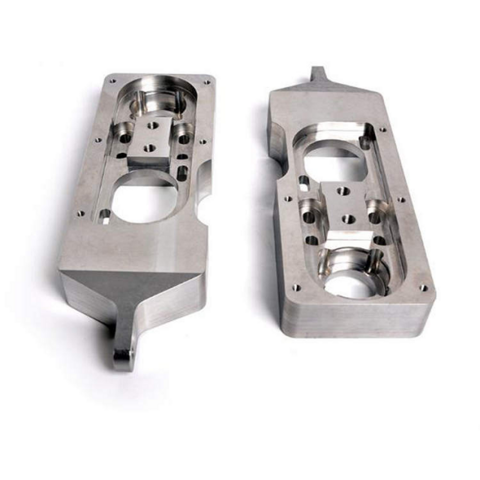The Definitive Guide to Alcast Company
The Definitive Guide to Alcast Company
Blog Article
See This Report about Alcast Company
Table of ContentsThe Greatest Guide To Alcast CompanyOur Alcast Company IdeasHow Alcast Company can Save You Time, Stress, and Money.4 Simple Techniques For Alcast CompanySome Known Facts About Alcast Company.The 8-Minute Rule for Alcast Company
The refined distinction hinges on the chemical material. Chemical Comparison of Cast Aluminum Alloys Silicon promotes castability by minimizing the alloy's melting temperature level and boosting fluidity during casting. It plays a critical role in allowing complex mold and mildews to be filled accurately. In addition, silicon adds to the alloy's strength and wear resistance, making it valuable in applications where longevity is critical, such as auto parts and engine components.It likewise enhances the machinability of the alloy, making it easier to process into finished items. In this method, iron adds to the general workability of aluminum alloys. Copper boosts electric conductivity, making it advantageous in electric applications. It likewise boosts deterioration resistance and includes in the alloy's total strength.
Manganese contributes to the strength of aluminum alloys and improves workability. Magnesium is a light-weight element that offers strength and influence resistance to light weight aluminum alloys.
Some Known Questions About Alcast Company.
It enables the production of lightweight components with exceptional mechanical buildings. Zinc boosts the castability of light weight aluminum alloys and helps control the solidification procedure during casting. It improves the alloy's stamina and solidity. It is usually discovered in applications where elaborate forms and great information are required, such as ornamental castings and particular automobile components.

The main thermal conductivity, tensile stamina, yield toughness, and prolongation differ. Select suitable raw materials according to the efficiency of the target item generated. Among the above alloys, A356 has the highest possible thermal conductivity, and A380 and ADC12 have the most affordable. The tensile restriction is the opposite. A360 has the finest return stamina and the highest prolongation price.
Getting The Alcast Company To Work

In accuracy spreading, 6063 is fit for applications where detailed geometries and high-quality surface area finishes are vital. Instances consist of telecommunication rooms, where the alloy's premium formability permits smooth and visually pleasing designs while preserving structural integrity. In the Illumination Solutions sector, precision-cast 6063 parts create elegant and effective lighting fixtures that need detailed forms and great thermal efficiency.
The A360 displays superior prolongation, making it suitable for complicated and thin-walled parts. In precision spreading applications, A360 is appropriate for sectors such as Consumer Electronics, Telecommunication, and Power Devices.
Alcast Company for Beginners
Its one-of-a-kind properties make A360 a useful option for precision casting in these markets, enhancing item resilience and high quality. Casting Foundry. Light weight aluminum alloy 380, or A380, is a commonly used spreading alloy with a number of distinctive features.
In precision casting, aluminum 413 shines in the Customer Electronic Devices and Power Tools industries. It's typically utilized to craft intricate elements like smart device real estates, camera bodies, and power device casings. Its precision is exceptional, with tight tolerances as much as 0.01 mm, making sure flawless product assembly. This alloy's premium deterioration resistance makes it an excellent choice for outdoor applications, guaranteeing resilient, sturdy products in the pointed out sectors.
What Does Alcast Company Do?
When you have actually chosen that the aluminum die casting process is appropriate for your job, a critical next step is choosing one of the most appropriate alloy. The aluminum alloy you select will considerably affect both the spreading process and the residential or commercial properties of the end product. As a result of this, you must make your choice carefully and take an enlightened approach.
Establishing the most suitable light weight aluminum alloy for your application will certainly imply evaluating a wide range of characteristics. These comparative alloy features comply with the North American Pass Away Casting Association's guidelines, and we have actually split them right into two categories. The first group addresses alloy characteristics that impact the production procedure. The 2nd covers characteristics impacting the properties of the last product.
Excitement About Alcast Company
The alloy you select for die casting straight affects a number of facets of the spreading process, like how simple the alloy is to deal with and if it is susceptible to casting flaws. Warm breaking, additionally understood as solidification fracturing, is a regular die spreading defect for light weight aluminum alloys that can cause interior or surface-level splits or cracks.
Particular aluminum alloys are more at risk to warm cracking than others, and your choice ought to consider this. It can harm both the actors and the die, so you must look for alloys with high anti-soldering residential or commercial properties.
Deterioration resistance, which is already a remarkable feature of light weight aluminum, can differ significantly from alloy to alloy and is a necessary characteristic to consider depending on the ecological problems your product will certainly be exposed to (aluminum casting manufacturer). Wear resistance is another residential property see this frequently looked for in light weight aluminum items and can set apart some alloys
Report this page